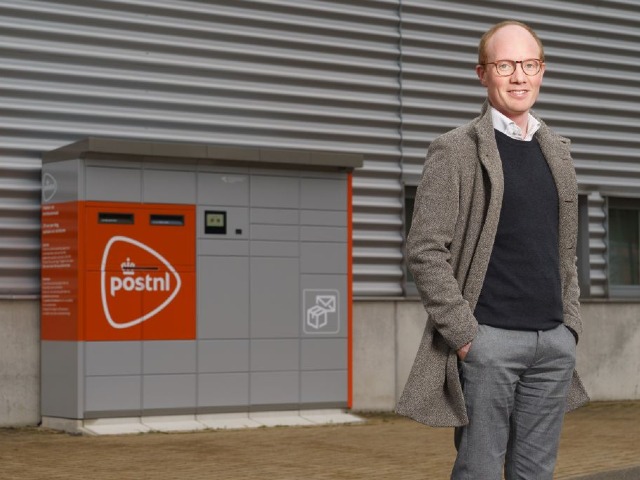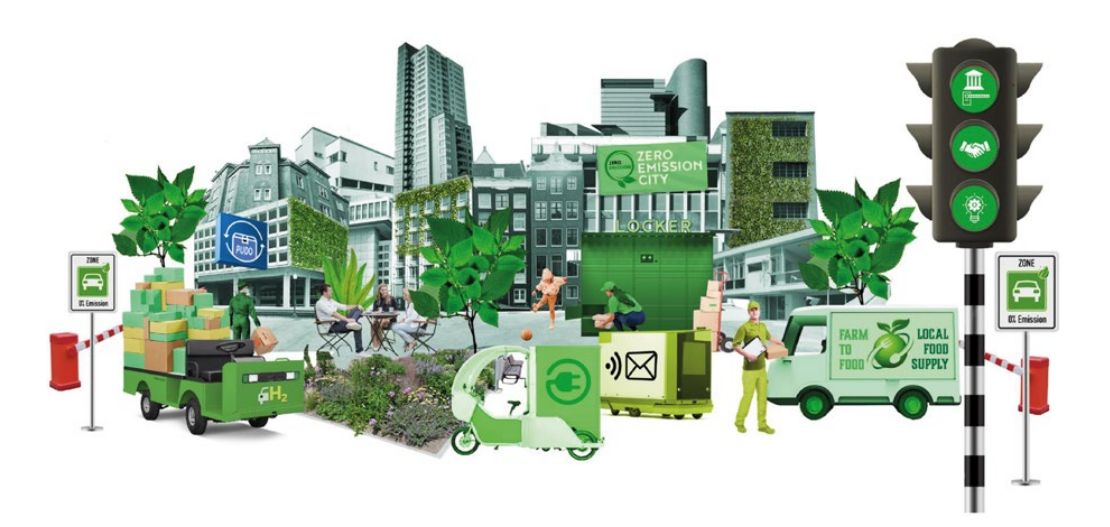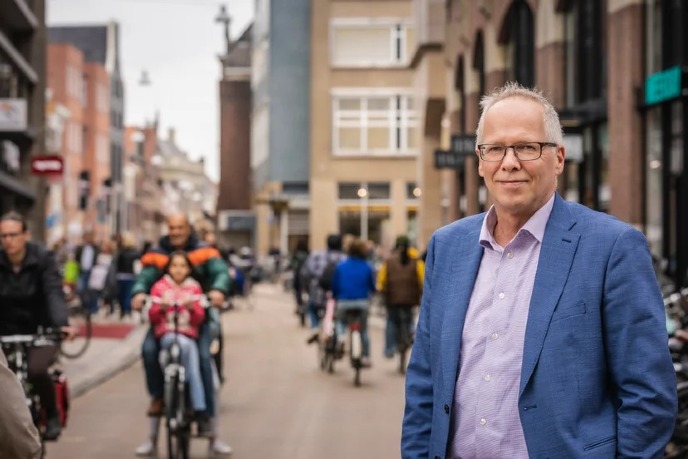Impact case: Urban Freight Transport
| Date: | 08 February 2024 |

Creating societal impact is one of the ambitions of FEB's research policy. This case is one of the impact cases rewarded by FEB in 2023.
Paul Buijs’ research on sustainable urban freight transport actively engages with practice. Activities initially focused on Groningen and its surrounding areas, but have now expanded to national and international contexts. His involvement with practice has resulted in contributions to policy documents, but also to the development, implementation, and evaluation of sustainable urban freight transport solutions with the goal of improving accessibility and quality of life in cities.
He worked in close collaboration with policymakers and stakeholders from the city of Groningen and its hinterland. At the same time, he hosted a workshop late 2022 about the location of parcel lockers in public space, where cities from all over Europe learned about his research and how to use key insights for their specific contexts. The engagement with practice has also sparked new research initiatives.

Underpinning Research
In his research, Buijs looks at innovative solutions in urban freight transport that aim to enhance the accessibility and quality of life in cities. These innovations include the use of hubs to consolidate and transport freight from multiple suppliers more sustainably into the city, as well as alternatives to attended home delivery. Furthermore, he is interested in exploring organizational innovations in this domain. For example, he investigated how public purchasing can be utilized to award government contracts for facility goods (such as printer services and hygiene products) based on the extent to which suppliers adopt sustainable freight transport practices.”
The research insights demonstrate the complex and nuanced nature of urban freight transport. Innovative solutions in this area can have diverse and sometimes unexpected effects. For instance, pickup points are often considered a sustainable alternative to attended home delivery as they enable more efficient and sustainable delivery routes. However, some consumers may travel to a pickup point by car, negating the sustainability benefits of the delivery vehicle. Counter to common belief, pickup points therefore seldom contribute to sustainable urban freight transport.
To enhance accessibility and quality of life in cities, both national and local governments can implement regulations that limit the access of polluting freight transport vehicles while promoting sustainable alternatives. The future of urban freight transport will be shaped by the type and extent of government action, technological innovation, and collaboration among stakeholders, where only a few possible combinations would result in sustainable urban freight transport in the future.

Testimonial from Philip Broeksma, Alderman of the Municipality of Groningen
“The supply of goods and services to the inner city of Groningen puts pressure on public spaces. That is why the municipality of Groningen encourages smart solutions. Paul and the researchers in his team are regularly involved in the design, implementation, and monitoring of such solutions and contribute to the evaluation of measures aimed at reducing the nuisance of urban logistics. During these activities, researchers and students work closely with the municipality and the business community, helping them remain connected to recent developments in the field of sustainable urban logistics.”
References
Future scenarios for last-mile logistics in mid-size European cities Download pdf.
Een simpele oplossing tegen drukte in de stad (A simple solution for a busy city) Watch video
Niemeijer, R. , & Buijs, P. (2023). A Greener Last Mile: Analyzing the Carbon Emission Impact of Pickup Points in Last-Mile Parcel Delivery, Renewable and Sustainable Energy Reviews, 186, 11, P113630.

